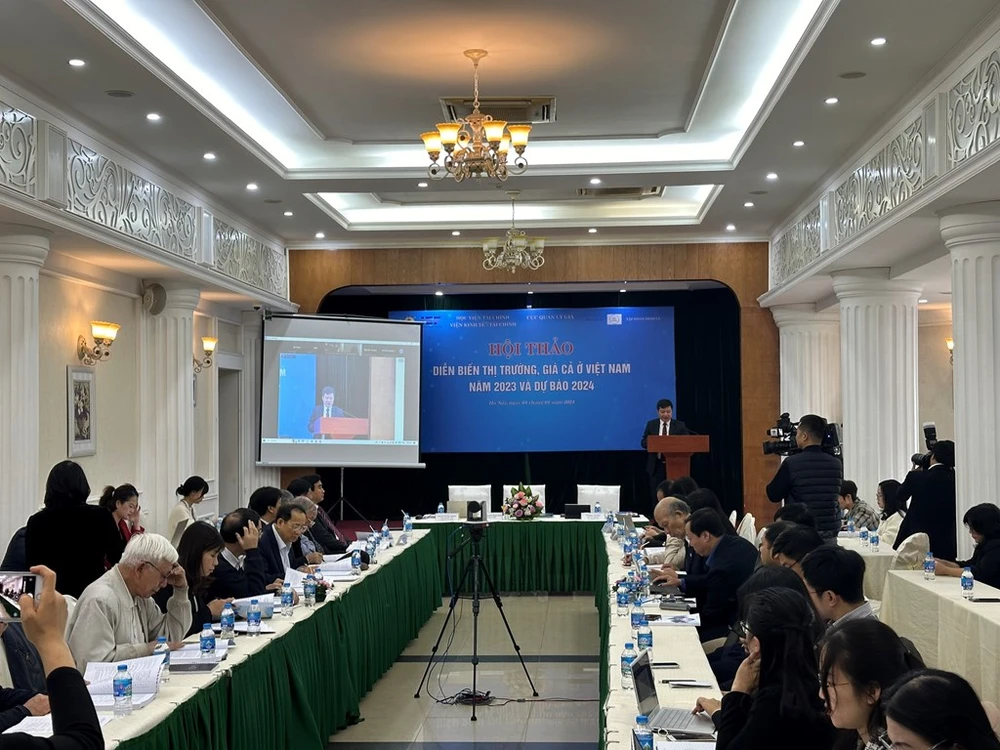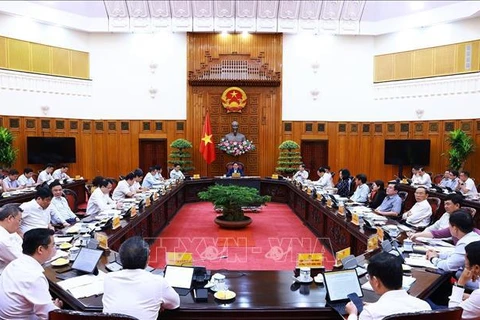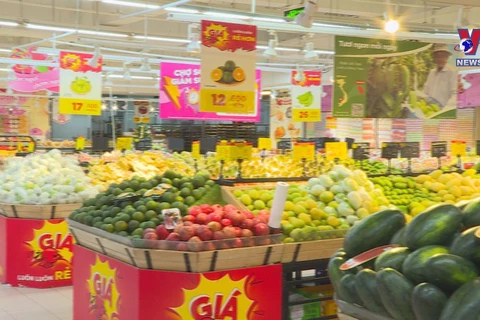
Hanoi (VNA) – Experts and scientists sought price management solutions, especially in the context that the minimum wage has increased since July 1, at a workshop in Hanoi on July 3.
Jointly held by the Institute of Economics and Finance (IEF) at the Academy of Finance and the Department of Price Management under the Ministry of Finance, the workshop reviewed market and price developments in the first half of this year, and gave forecasts for the whole year.
Dr. Nguyen Duc Do, deputy head of the institute, said inflation pressure in the reviewed period is not a big problem, noting that the consumer price index (CPI) rose by only 1.4% as compared with late 2023, and in the second quarter alone, it inched up 0.1% monthly.
In this regard, economist Ngo Tri Long said although inflation has been controlled within the plan, core inflation has shown a rising trend since mid-2022.
The Department of Price Management also predicted that inflation pressure will be felt clearly in the second half due to the impacts of regional and global uncertainties.
Economists shared the view that the prices of goods would rocket in the remaining months of the year and beyond after the 30% increase in base salary.
Against the backdrop, some suggested the roll-out of concerted solutions in communications work as well as economic, financial, administrative and legal aspects, involving all stakeholders from the State, businesses to residents.
The State should set aside resources or mechanisms to stock goods and deliver them when needed, form a ceiling price mechanism suitable for essential goods, strengthen market management, and increase imports to keep prices stable, they said, urging enterprises to restructure their business and put into place new business models to cut costs.
Long forecast the national CPI to grow between 4.2% and 4.5% as global inflation and prices are cooling down, and the Government has maintained a cautious and proactive attitude in price management and inflation control.
The department stressed the need to keep a close watch on market developments, especially the prices of essential goods and services, and manage the monetary policy in tandem with the fiscal policy and others to contribute to stabilising the macro economy, taming inflation and ensuring major economic balances.
It also suggested ministries, agencies and localities work out price management plans for goods and services subject to State control in prices, and thoroughly assess impacts of any adjustments.
The Ministry of Finance said it will continue keeping tabs on price plans and roadmaps put forth and proposed by ministries to update inflation scenarios, which will serve as a basis for the ministry to advise the Government, the Prime Minister and the head of the steering committee on price management, in order to achieve the yearly inflation target of 4-4.5% set by the National Assembly./.






















